The summer of 1969 was one of the ost fateful ones in history! The first man walked on the moon in July. Judy Garland died of drug overdose on June 22. The gay rights movement saw its tumultuous beginning in New York’ West Village, with the Stonewall Riots on June 28.
Stonewall, the British film financed by the BBC, and the best fiction narrative thus far, es these dramatic events and molds them into a fascinating, emotionally touching drama.
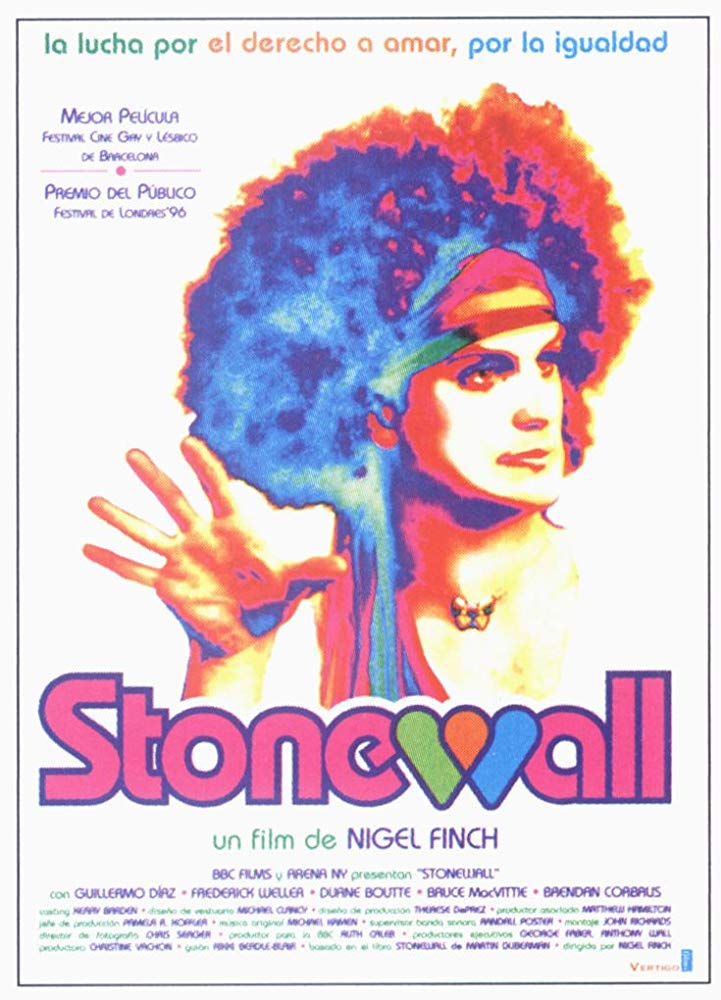
The movie was directed by Nigel Finch, who unfortunately died of AIDS during post-production; Christine Vachon, his dedicated producer, completed it with her crew. Finch, you may recall, was executive producer on Jennie Livingston’s landmark documentary, Paris Is Burning, and the award-winning director of The Lost Language of Cranes.
In his feature debut, Finch shows so much talent that it’s heartbreaking to realize he will never have the chance to blossom as a filmmaker.
Loosely adapting Martin Duberman’s novel (of the same title), screenwriter Rikki Beadle Blair captures the richly-textured era as seen from the perspective of one young, white man, Matty Dean (Frederick Weller), a handsome James Dean-like type.
Arriving in New York on a Greyhound bus from Kansas, Matty heads straight downtown, to Greenwich Village. Can you blame him? It’s the late 1960s and gay life is ready to bust a steam. Wandering around, Matty stumbles into “Stonewall,” the hangout of wildly flamboyant drag queens, where he meets LaMiranda (Guillermo Diaz), a flashy transvestite blessed with a heart-of-gold.
Each and every gathering at the bar faces the imminent danger of police invasion with the most devastating consequences–interrogation, humiliation, physical abuse, and even arrest.
Initially, this particular night, which would become fatal and historical, is no different. As soon as the divas start to relax, dance and exchange nasty barbs, the lights begin to flash, which means the police is at the door.
Hard to believe, but in the year of the Apollo moonwalk, homosexuality was still dangerously illegal. Even on Fire Island, already an openly gay paradise in the 1960s, gay men could be busted for wearing “suggestive” bathing suits–or even holding hands.
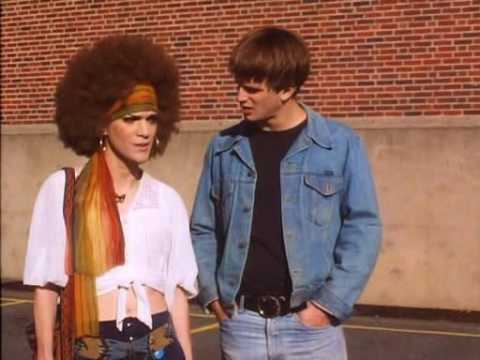
Though customarily disregarded in gay bars, there were still laws-prohibiting liquor sales to homosexuals and requirements of gender-appropriate dress codes.
Men often disobeyed, but the police used those prohibitions for routine harassment sprees of notorious drag clubs like “Stonewall.”
Eventually, “Stonewall” would be the strategic site where a bunch of heroic drag queens decided to fight back against a repressive society–fabulous makeup, tight dresses, high heels and all!
Don’t push me, Mary, I’m not in the mood
“Don’t push me, Mary, I’m not in the mood,” says a drag queen to her arresting officer before the violent brawl begins. As fate would have it, the riots occurred when the whole country–but particularly gay men–grieved over Judy Garland’s shockingly sudden death.
Finch intercuts the bar sequences with the more serious political activities, occurring in the background. This was the time of the first gay rights demonstrations, led by organizations such as the Manhattan Society, which published a magazine and moved its campaign from one city to another.
As the story unfolds, Matty is caught between the “disreputable” glamour of the “Stonewall” gang and the more sober political efforts of activists determined to fight the system from within.
On a parallel personal track, Matty has to choose between dazzling hip-syncher LaMiranda and his other love interest, Ethan (Brendan Corbalis), a more “conventional” young man searching for his own identity and social acceptance.
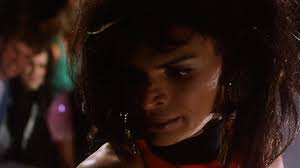
Though Matty’s personal and political dilemmas occupy the core of the movie, the more interesting–and ultimately more touching–relationship is that between Vinnie (Bruce MacVittie), the Catholic Mafia manager of the bar, and Bostonia (Duane Boutte), a black drag queen sporting blond wigs and ostentatious costumes.
Love is not the issue, for clearly they’re bonded nd enjoy each other’s company, in and out of bed. The real problem is their lifestyle–they can never be seen in public together. At first, Vinnie puts pressure on Bostonia to undergo a sex-change operation so that they can settle down into a routine domesticity. Bostonia’s outrage at his ploy pushes Vinnie to the other extreme–flaunting their relationship in all its glory at a chic restaurant, a courageous act that ends in a tragic disaster.
Not pretending to be anything other than a fictionalized account, Stonewall may be criticized for its lack of accuracy in presenting the conditions that led to the watershed riots. But for me, what’s more significant is that the movie’s emotional exuberance and colorful charm will open up an important chapter in gay history to a post-Stonewall generation.
Stonewall, to be sure, is not a flawless film. Though the filmmakers succeed in conveying vividly the flavor of the era, I wish the movie went deeper in dissecting its central characters. In moments, an aura of gloss envelops the picture, lending it a light, overly melodramatic, feel.
And there is the problme of revolving the saga around a young, white, handsome man, as if trying to ease the viewers’ way into a troubled chapter of history. In fact, most of the active players were multi-racial, especially blacks and Latinos.
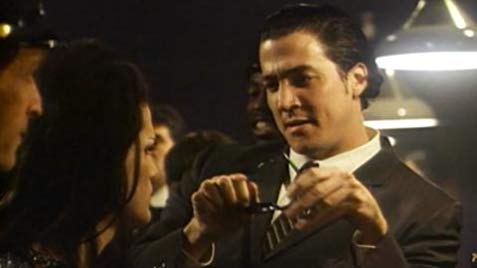
Finch must have been aware of this problem for, as if to undercut the movie’s occasionally soft and sappy tone, he has chosen a boldly expressive style. Stonewall is basically a musical drama. Familiar 1960s melodies are so well integrated into the narrative that they serve as much more than divertissement; they are like punctuation marks to the story.
Ideally, the film should have been released in 1994, as part of Stonewall’s 25th anniversary celebrations. But better late than never.
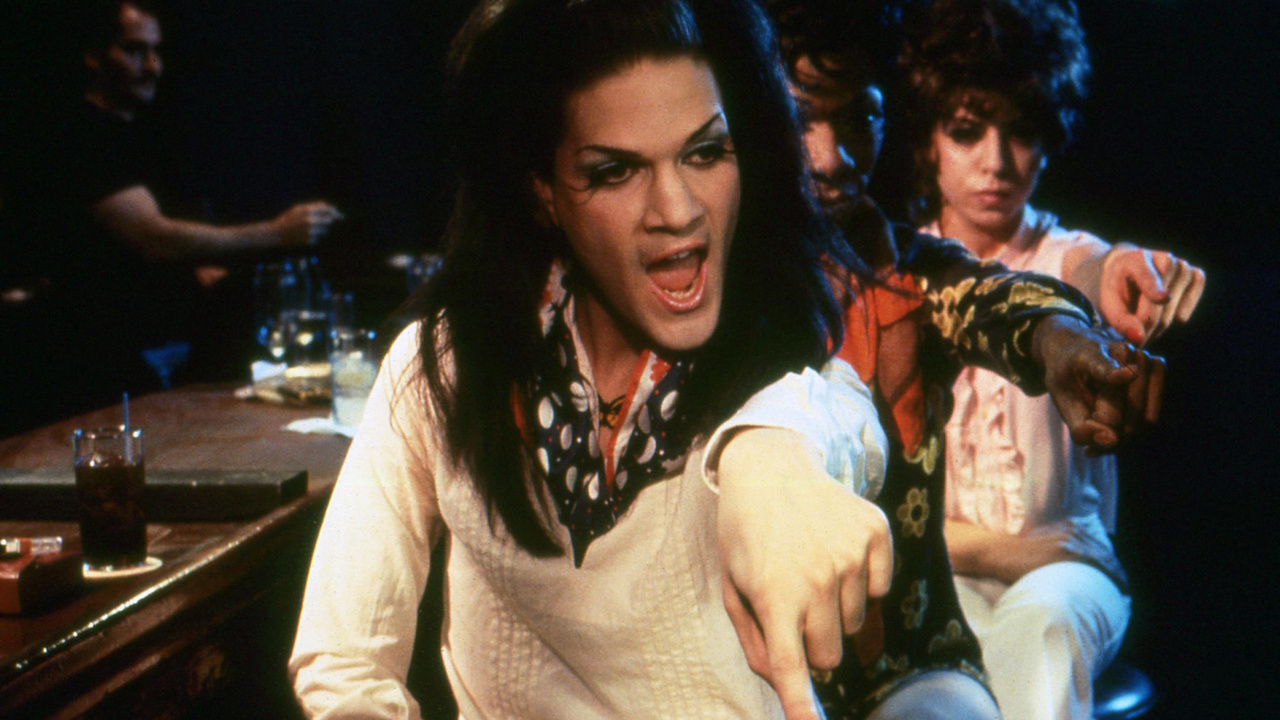
If you’re curious about where and how gay politics began, don’t miss this pertinent and yet always entertaining experience.
Stonewall is a welcome breath of fresh air amidst recent Hollywood movies, such as To Wong Foo and The Birdcage, which have shamelessly exploited drag queens, turning them into mass-marketed, shopping-mall, multiplex phenomena
Cast
Guillermo Diaz as La Mirand
Frederick Weller as Matty Dean
Brendan Corbalis as Ethan
Duane Boutte as Bostonia
Bruce MacVittie as Vinnie
Peter Ratray as Burt
Dwight Ewell as Helen Wheels
Matthew Faber as Mizz Moxie
Michael McElroy as Princess Ernestine
Luis Guzman as Vito
Joey Dedio as Angelo
Divas:
Candis Cayne, David Drumgold, Keith Levy
Stonewall Testimonials:
Robert Loudon, Bob Kobler, Queen Allyson Allante, Thomas Lanigan-Schmidt, Randy Wicker, Sascha Loren



